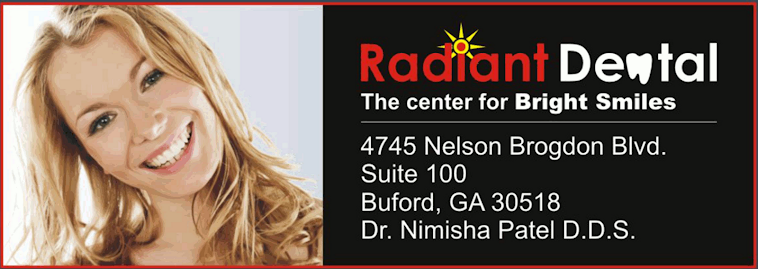Don’t let dental visits slide! Adult life can sometimes be a juggling act and it may feel like you just can't find the time for a dental visit. But making time for regular dental visits now can help keep you out of the dental office in the future.
Brush and floss daily, even
if it’s late. You've heard this a million times by now, but the importance of
regular brushing and flossing can never be emphasized enough. Even if you've
been good about your oral hygiene all your life, resist the temptation to let
it slide for even one day; the longer plaque stays on your teeth, the more
destructive it becomes.
Eat well-balanced meals.
When you're juggling work, home and kids, it can be tempting to turn to fast
food, soda and sugary snacks as a way to save time and feel more energetic. But
sugar is a tooth decay demon and can cause you to crash after that initial
"sugar high." Be sure to integrate plenty of fresh vegetables into
your daily meals and eat fruit, nuts and celery or carrot sticks as snacks.
Exercise regularly -- it's
good for your teeth! Studies show that people who maintain a healthy lifestyle
-- exercise and eating right -- are 40 percent less likely to develop advanced
gum disease.
Consider treating yourself
to cosmetic dentistry. Whether you want a quick boost or a complete smile
makeover, there are plenty of cosmetic dental treatments available to help you
achieve your dream smile. One-hour laser teeth whitening treatments can make
your teeth 8-10 shades whiter, and porcelain veneers can mask stained teeth,
chipped teeth or crooked teeth.
